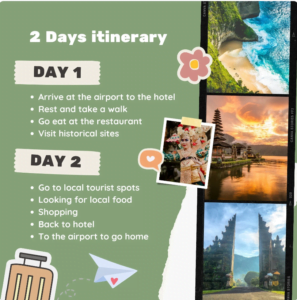Have you ever wondered if virtual travel assistants have any limitations or challenges? Well, AllAboardHub, a leading travel company that uses artificial intelligence to enhance your travel experiences, is here to shed some light on the subject. As the travel industry continues to evolve, virtual travel assistants have become increasingly popular, offering convenience and personalized recommendations. However, it’s essential to understand the possible limitations and challenges associated with these virtual helpers to make the most informed decisions when planning your next adventure. Let’s explore some of the potential obstacles that may arise when relying on virtual travel assistants.
Security Concerns
In an increasingly digital world, where personal information is shared and stored online, data privacy and cybersecurity are major concerns for travelers using virtual travel assistants. These AI-powered tools collect and store user data, including personal information such as names, addresses, and credit card details. There is always a risk that this data could be compromised, either through hacking or by third-party misuse.
While virtual travel assistants strive to protect user data through encryption and secure protocols, there is still the potential for security breaches. It’s essential for users to be cautious when providing sensitive information to these tools, and they should ensure that the virtual assistant they are using follows strict security protocols and meets industry standards for protecting user data.
Data Privacy
Virtual travel assistants typically require users to provide personal information in order to make bookings, reservations, and other travel arrangements. This can include sensitive details such as passport numbers and credit card information. While these assistants aim to protect user data, there is always a risk of data breaches or unauthorized access.
To mitigate the risk to data privacy, users should be cautious about the information they provide to virtual travel assistants. They should only provide necessary information and ensure that the assistant they are using has robust security measures in place to safeguard their data. It is also advisable to regularly review privacy policies and terms of service to stay updated on how personal data is being handled.
Cybersecurity Risks
With the growing sophistication of cyber attacks, there is a constant need to be vigilant about cybersecurity risks associated with virtual travel assistants. These AI-powered tools rely on internet connectivity and communicate with various servers and databases to provide travel-related information and services. This connectivity can potentially expose users to malicious activities such as phishing attacks, malware, and identity theft.
To minimize cybersecurity risks, it is crucial to use reputable virtual travel assistants that have robust security measures in place. Users should also keep their devices updated with the latest security patches and regularly scan for malware or potential vulnerabilities. Being aware of common cybersecurity pitfalls and practicing safe internet habits can go a long way in ensuring a secure travel experience.
Language and Cultural Barriers
Virtual travel assistants are designed to cater to travelers from all around the world, but there are inherent challenges in bridging language and cultural barriers. While these tools offer translation services and provide information on local customs and traditions, there can be limitations and inaccuracies in their ability to accurately convey meaning and context.
Translation Accuracy
Language translation is a complex task, and virtual travel assistants rely on automated algorithms to provide translation services. While these algorithms have improved significantly over the years, they are not perfect. There can be instances where translations are not nuanced or contextually accurate, resulting in misunderstandings or miscommunication.
Travelers should be aware that relying solely on automated translations provided by virtual travel assistants may have limitations. It is always advisable to double-check translations with reliable sources or consult local experts for more accurate understanding.
Understanding Local Customs and Traditions
Virtual travel assistants are programmed to provide information on local customs and traditions, allowing travelers to better navigate foreign cultures. However, the challenge lies in their ability to fully understand and relay the intricacies of different customs and traditions.
Cultural practices can be highly nuanced and often require live interactions and personal experiences to fully grasp. Virtual travel assistants can provide general information, but they may not capture the complete essence and depth of local customs. For a more authentic experience, it is recommended to engage with local guides or residents who can offer firsthand insights into the local culture.
Limited Personalization
While virtual travel assistants strive to provide personalized recommendations and cater to individual preferences, there are inherent limitations to their capabilities. These limitations stem from the reliance on algorithms and automated processes, which may not always accurately gauge personal preferences and tastes.
Generic Recommendations
Virtual travel assistants often analyze user data and travel patterns to provide tailored suggestions and recommendations. However, these recommendations can sometimes be too generic or fail to meet the unique preferences of individual travelers. The personal touch and intuition that a human travel advisor can provide may be lacking.
Travelers who seek more customized recommendations should consider supplementing their virtual travel assistant experience with insights from travel blogs, forums, or by consulting travel experts who can offer personalized advice and recommendations.
Difficulty Catering to Individual Preferences
Virtual travel assistants rely on algorithms to understand and anticipate user preferences. While they aim to learn from user behavior and provide tailored recommendations, there can be challenges in accurately predicting individual preferences, especially for travelers with diverse tastes.
For travelers with specific interests or preferences, it may require additional research and effort to find options that align with their needs. By combining the assistance of virtual travel assistants with personal research and exploration, travelers can ensure a more tailored and satisfying travel experience.
Dependency on Technology
Virtual travel assistants heavily rely on technology to provide travel-related information and services. While technology brings convenience and efficiency, there are inherent risks and challenges associated with dependency on these tools.
Reliability of Internet Connection
Virtual travel assistants need a stable internet connection to function optimally. However, there can be instances where internet connectivity is limited or unreliable, particularly in remote or rural areas or during travel to foreign countries.
Travelers should be prepared for potential challenges in accessing virtual travel assistants due to connectivity issues. It is advisable to have alternative means of obtaining travel-related information to mitigate reliance on these tools in situations where internet access is limited.
Technical Glitches and Errors
Like any technology, virtual travel assistants can encounter technical glitches and errors. These issues can range from minor inconveniences, such as incorrect information or slow response times, to more significant disruptions that affect the usability of the tool.
When using virtual travel assistants, it is important to be aware of the possibility of technical glitches and errors. Travelers should have backup plans and alternative sources of information to rely on in case of unforeseen technical difficulties.
Lack of Human Touch
While virtual travel assistants offer convenience and efficiency, they often lack the human touch that personal interactions provide. This can have implications for emotional support and personalized recommendations.
Inability to Provide Emotional Support
Traveling can be a stressful and emotionally overwhelming experience at times. Virtual travel assistants, despite their advanced capabilities, cannot offer the same level of empathy and emotional support as a human travel advisor or guide.
For travelers who value emotional support during their journeys, it may be beneficial to seek out opportunities for human interaction, such as joining group tours or interacting with locals, in addition to using virtual travel assistants for general travel-related information.
Absence of Personalized Recommendations
While virtual travel assistants can provide personalized recommendations based on user preferences, they may lack the intuitive understanding and personal touch that a human travel advisor can offer. These tools rely on algorithms and data analysis, which may not take into account the unique circumstances and desires of individual travelers.
To ensure a more tailored and personalized travel experience, travelers may consider combining the assistance of virtual travel assistants with advice and recommendations from human travel experts who can offer a deeper level of personalization.
Complex Travel Itineraries
Planning and managing complex travel itineraries can be challenging, and virtual travel assistants may struggle to handle multi-destination trips and niche travel locations.
Try Free Itinerary Generator Here ->
Difficulty Handling Multi-destination Trips
Virtual travel assistants are often designed to handle simple travel itineraries, such as booking flights and accommodations for a single destination. However, when it comes to more complex travel plans that involve multiple destinations and intricate logistics, these tools may fall short.
For travelers with multi-destination trips, it may be necessary to supplement virtual travel assistants with additional research, specialized travel apps, or the assistance of human travel advisors who have expertise in handling complex itineraries.
Limited Knowledge of Niche Travel Locations
Virtual travel assistants rely on databases and algorithms to provide travel-related information. While they may be well-equipped to offer suggestions for popular travel destinations, they may lack comprehensive knowledge of niche or off-the-beaten-path locations.
Travelers seeking information or recommendations for lesser-known destinations should consider exploring alternative sources such as travel blogs, forums, or seeking advice from experienced travelers who may have firsthand knowledge of these locations.
Accessibility and Inclusivity
Virtual travel assistants aim to cater to a wide range of travelers, but there can be limitations and challenges in providing support for disabled travelers and non-English speakers.
Limited Support for Disabled Travelers
Virtual travel assistants may not have the necessary accessibility features or resources to fully cater to the needs of disabled travelers. These tools might not provide information on wheelchair-accessible accommodations, specialized transportation options, or other assistance required by disabled travelers.
For disabled travelers, it is essential to reach out to specialized travel agencies or advocacy organizations that can offer guidance and support tailored to their specific needs. While virtual travel assistants can provide general travel information, additional research and personalized advice may be necessary.
Language Barrier for Non-English Speakers
While virtual travel assistants do offer language translation services, their ability to accurately and comprehensively translate information may be limited. Non-English speakers may encounter challenges in obtaining accurate and contextually appropriate translations when relying solely on virtual travel assistants.
For non-English speakers, it is advisable to seek the assistance of human interpreters or translators to ensure clear and accurate communication. Additionally, exploring alternative sources of information, such as travel guides in the native language, can provide a more comprehensive understanding of travel destinations and services.
Risk of Overreliance
While virtual travel assistants offer convenience and efficiency, there is a risk of overreliance on these tools, which can have negative consequences for travel planning skills and spontaneity.
Danger of Not Developing Travel Planning Skills
Virtual travel assistants streamline the travel planning process and provide ready-made recommendations. While this can be advantageous, it may also diminish the opportunity for travelers to develop essential travel planning skills, such as research, decision-making, and problem-solving.
To maintain a well-rounded travel experience, it is important for travelers to actively participate in the planning process, conduct independent research, and make conscious decisions rather than solely relying on virtual travel assistants.
Loss of Spontaneity and Serendipity
Virtual travel assistants excel at providing structured travel recommendations and itineraries. However, this can inadvertently limit the sense of spontaneity and serendipity that often accompanies travel experiences.
Travelers who value unplanned encounters and unexpected discoveries may need to strike a balance between using virtual travel assistants and allowing room for unplanned adventures. Leaving some flexibility in the itinerary and being open to new experiences can enhance the overall travel experience.
Lack of Human Expertise
Virtual travel assistants, despite their advanced algorithms, may lack the expertise and local insight that a human travel advisor or guide can provide.
Inaccurate Information
While virtual travel assistants aim to provide accurate and up-to-date information, there can be instances where the data they rely on is outdated or inaccurate. This can lead to misinformation or incorrect recommendations.
To ensure the accuracy of travel information, it is advisable to cross-reference details provided by virtual travel assistants with reliable sources, such as official tourism websites or local experts.
Absence of Local Insight
Virtual travel assistants rely on data and algorithms to provide information on local attractions, dining options, and other travel-related details. However, they may lack the firsthand knowledge and personal experience that a local guide or resident can offer.
For a more authentic and enriching travel experience, travelers may consider engaging with local guides or residents who can provide unique insights, hidden gems, and insider tips that may not be readily available through virtual travel assistants.
Ethical Concerns
The widespread use of virtual travel assistants raises ethical concerns, including potential exploitation of these tools and the impact of AI on job displacement within the travel industry.
Exploitation of AI Assistants
Virtual travel assistants can be exploited by malicious actors who may try to manipulate the information provided by these tools for personal gain. This can range from promotional content disguised as genuine recommendations to biased information aimed at steering travelers towards specific destinations or services.
Travelers should be cautious and critically evaluate the information provided by virtual travel assistants. Cross-referencing with multiple sources and consulting trusted travel experts can help ensure that the recommendations received are unbiased and reliable.
Job Displacement in the Travel Industry
The rise of virtual travel assistants and AI-powered tools has the potential to disrupt the travel industry and result in job displacement, particularly for human travel advisors and agents. These tools offer automation and cost-effectiveness, which can make them attractive alternatives to traditional human-led travel services.
As travelers, it is important to be aware of the impact of technology on employment in the travel industry. Supporting and utilizing the services of human travel advisors and agents can help sustain local economies and retain the invaluable expertise and personal touch they bring to the travel experience.
In conclusion, while virtual travel assistants have revolutionized the way we explore the world, they come with their own set of limitations and challenges. These range from security concerns and language barriers to limited personalization and dependency on technology. It is important for travelers to be aware of these limitations and take proactive steps to mitigate any risks or shortcomings. By combining the assistance of virtual travel assistants with personal research, engaging with local experts, and maintaining a balance between technology and human expertise, travelers can enhance their travel experiences and navigate the challenges associated with virtual travel assistants effectively.



